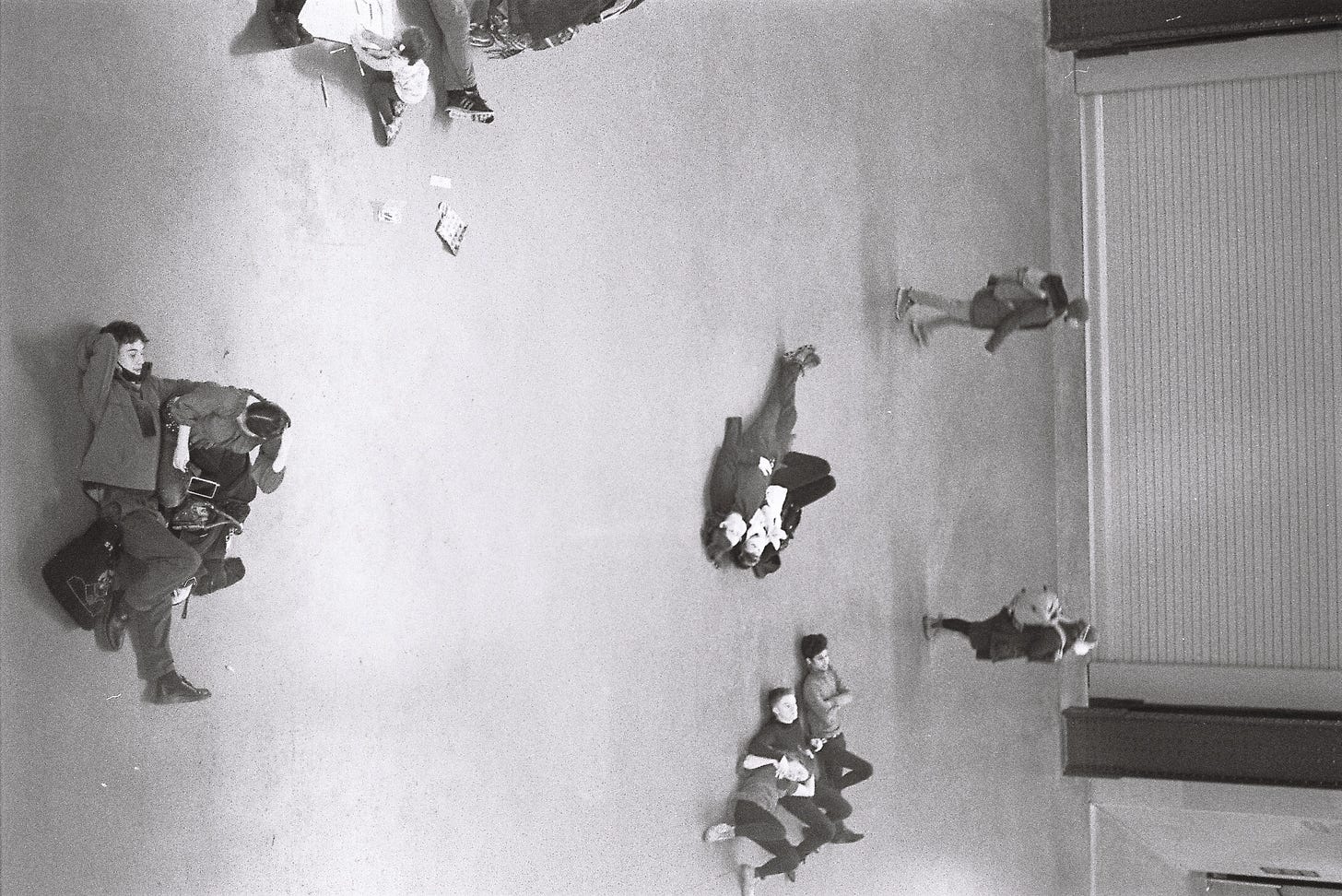Frankly, Mr Shankly, I’m a sickening wreck / I’ve got the 21st century breathing down my neck… Fame, fame, fatal fame / It can play hideous tricks on the brain / But still I’d rather be famous than righteous or holy.
A little while after Morrissey wrote this line, the 21st century practically came to be inside our lungs. A poet I like posted these lines on his social media recently. He was talking about how nowadays, the neon-green ‘Brat’ coded and ‘woke’ Gen-Zs are oh so righteous and holy. Somehow we are the death of poetry and art. We did not have the 21st century standing close behind us, we are its blackened bronchioles. In fact, whatever decade or century that breathes down our neck, we probably don’t feel it at all as we shudder and shrivel from intimacy. Yet more than ever, the voice of the ‘I’ booms from contemporary literature and platforms like this one. Autofiction and the aestheticisation of inner turmoils are the new mythology. Art is the moment churned out rapidly in order to just feel something. Feel the immediacy of existence which is becoming more elusive. How can anyone not write as themselves when words are eyes? I suppose the difference is that between the ‘I’ of Rimbaud’s drunken boat and the ‘I’ of the twenty something year old graduate in a rent controlled (or not) apartment leaving dishes unwashed. We cannot afford to inhabit our own works of art and then walk out of it anymore. We have to make ourselves into a paraded property because that is all that we own.
The omniscient and ambiguous narrators that take on a panoramic view of their surroundings are confident that they are a part of nature as they are of themselves. Conversely, the ‘I’ of today may induce momentary relatability, often intense, but they are debilitated by the fact that they are exclusive to their inner self. Other narrators, such as Baldwin’s, are a blend of themselves and the selves of adjacent others. They are the ‘I’ that relinquishes the very definition of ‘I’ through empathy with others which occurs within and outside of the plot. They are the ‘I’ who are willing to let themselves be destroyed in order for other ‘I’s to exist. Now, we write the ‘I’ because we want to be saved.
Literature used to be grand in the sense that they make one feel embedded in a certain time. Now it is still grand but pretending that it is not. It makes one feel like the only person they see in the mirror is themselves.
Relatability, so desperately sought after, is the belief that this is the only remaining link between ourselves and the world. This is not only sought after in literature but in friendship and love. Intimacy became the notion that, in this isolated bedroom you are the only person who can understand me, not, you and I can walk through this field together feeling like a part of everything else.
We have always lived in contradiction, but now we are in denial through the process of resolving them in the name of pride and ‘the good life’. Messiness is perfection, minimalism is abundance, sadness is joy, simplicity is Baroque, morality police and moral dubiousness wear the same uniform and a lack of libido is almost heroic. We feel pride because we feel shame. This is the surviving contradiction. Pity is disguised as the affirmation that self improvement will be rewarded with more consumption.
One of the best things I have read lately is a short story by Caleb Crain in The New Yorker called Clay. It is [SPOILERS] about a woman in Texas calmly dwindling in her bland marriage who ends up getting shot in the middle of the night. We don’t know who the intruder is or if it was the husband. A mellow southern light envelopes the entire story. In the end she makes a possum out of clay as she recovers from brain damage. There is an element of excess and Neo-noir feeling to the story. Banal yet alluring, with a matter-of-fact shockingness. The story evokes the feeling of a true story. Persona with concrete outlines rather than a dubious voice of the struggles of the 21st century person. Only a slimmer of allusion is made towards the political context of present America, but the story itself is self-explanatory. A good story that feels like rocks in your hands, rather than a fragile mirror.
Is not that there is a complete absence of excessiveness, messiness, absurdities and nakedness. It is just that they are now packaged, sold, and worshipped like plastic iconography. The idea that being a certain way is necessary in order to be heard. The problem is that fact that we (emphasis: I, you, he, she, they) want to be heard at all. We want to protect the right to own something (ourselves) and got a bit lost doing it. Frankly, if it is a choice between fame and righteousness, we chose neither. That is a blessing and a curse.


